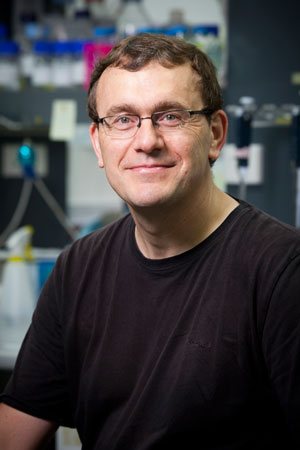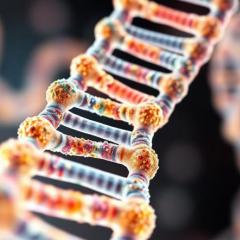 Researchers from Brisbane, Edinburgh and Aberdeen have revisited approximately 2,000 people who underwent intelligence tests in 1932 or 1947. The findings have indicated that genetic factors may account for about a quarter of the changes in intelligence over their lives.
Researchers from Brisbane, Edinburgh and Aberdeen have revisited approximately 2,000 people who underwent intelligence tests in 1932 or 1947. The findings have indicated that genetic factors may account for about a quarter of the changes in intelligence over their lives.
The unique study also suggests that the largest influence on changes in intelligence is environmental.
It still remains for researchers to identify exactly which genes are involved, and this could contribute to understanding and ameliorating cognitive decline.
The latest paper is helping them to hone in on the causes of these changes, and on the underlying question of the roles of genetics and environmental factors in determining our intelligence and how it changes across people’s lifetimes.
In a number of studies since early 2000, the Edinburgh and Aberdeen researchers have shown when people took intelligence tests as children and then again in old age, they tended to keep about the same relative score. However, there was also some change: some who did well early on went down slightly, and some who scored poorly as children did better in old age. The researchers are keen to understand what drives these changes in lifetime cognitive ageing.
“Identifying genetic influences on intelligence could help us to understand the relationship between knowledge and problem solving and an individual’s outcomes in life, and especially to understand why some people age better than others in terms of intelligence,” says paper co-author Professor Peter Visscher, from the Queensland Brain Institute and The University of Queensland Diamantina Institute. “We excluded people with dementia.”
“This research was only possible because of remarkable detective work by Professor Ian Deary and his team at the University of Edinburgh, and Professor Whalley and his team at the University of Aberdeen,” he says.
In June 1932 and June 1947 intelligence tests were carried out on almost all children born in Scotland in 1921 and 1936, respectively. Professor Deary and his colleagues successfully tracked down 2000 of these people who, then aged from 65 to 79, agreed to be re-tested and to give samples for DNA analysis.
The scientists then examined more than half a million genetic markers to work out how genetically similar the individuals were, even though they were not related.
“Until now, we have not had an estimate of how much genetic differences affect how intelligence changes across a lifetime,” says Professor Deary of the University of Edinburgh’s Centre for Cognitive Ageing and Cognitive Epidemiology. “The results partly explain why some people’s brains age better than others. We are careful to suggest that our estimates do not have conventional statistical significance, but they are nevertheless useful because such estimates have been unavailable to date.”
“The results also strongly suggest how important the environment is helping us to stay sharp as we age. Neither the specific genetic nor environmental factors were identified in this research. Our results provide the warrant for others and ourselves to search for those,” says Professor Visscher.
“It’s critical information because we know that intelligence is a predictor of many factors including lifespan, health and income. And, as our community ages we need to understand how we can predict and ultimately manage changes in cognitive thinking. Ultimately, understanding the influence of genetics in a healthy brain will help us understand and combat the changes caused by diseases like dementia.”
The published paper can be viewed here.
For The University of Queensland’s Queensland Brain Institute and Diamantina Institute
Visit www.scienceinpublic.com.au for background and links to the paper.
For interviews contact Professor Peter Visscher, +61 7 3346 6348, peter.visscher@uq.edu.au
Or Niall Byrne on 0417 131 977, niall@scienceinpublic.com.au
For the University of Edinburgh
Joanne Morrison, Press and PR Office, +44 131 651 4266; email Joanne. Morrison@ed.ac.uk



